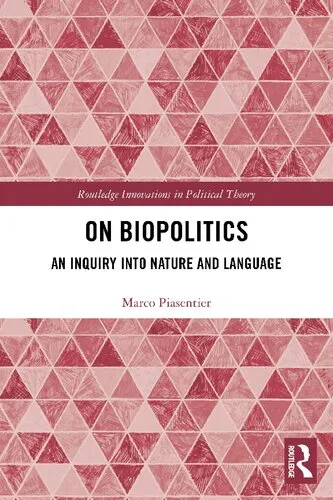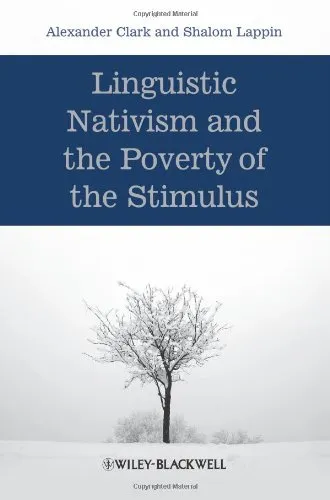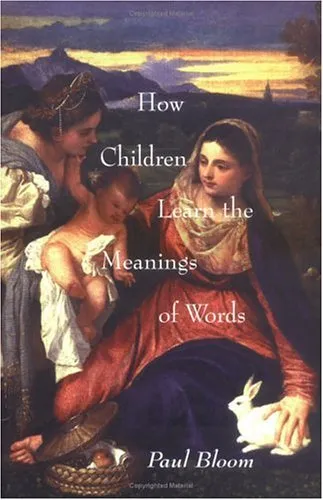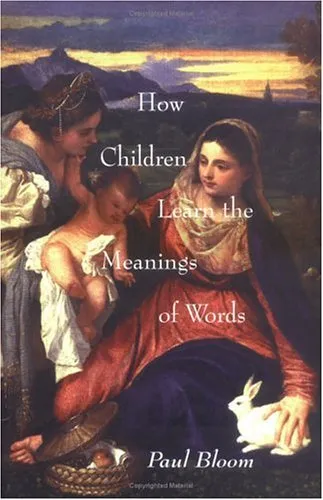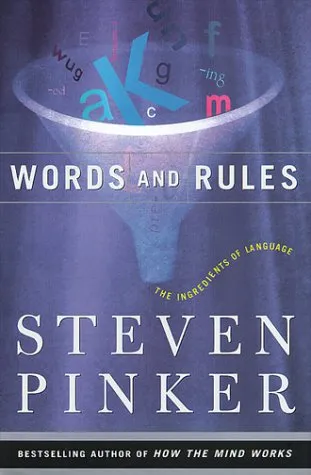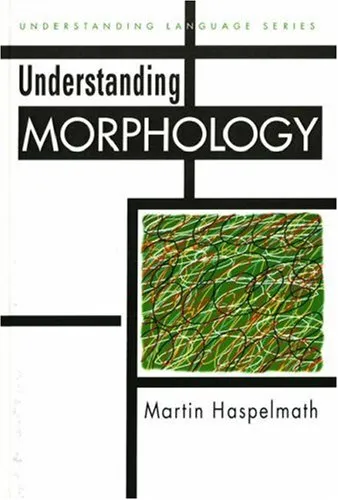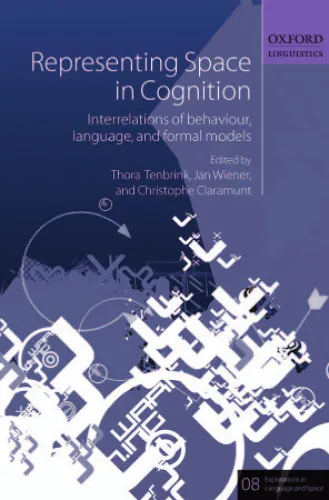On Biopolitics An Inquiry into Nature and Language
4.0
بر اساس نظر کاربران

شما میتونید سوالاتتون در باره کتاب رو از هوش مصنوعیش بعد از ورود بپرسید
هر دانلود یا پرسش از هوش مصنوعی 2 امتیاز لازم دارد، برای بدست آوردن امتیاز رایگان، به صفحه ی راهنمای امتیازات سر بزنید و یک سری کار ارزشمند انجام بدینکتاب های مرتبط:
معرفی کتاب "On Biopolitics: An Inquiry into Nature and Language"
کتاب "On Biopolitics: An Inquiry into Nature and Language" نوشته مارکو پیازنتیر، درک عمیقی از مفاهیم Biopolitics و چگونگی تقاطع طبیعت و زبان را ارائه میدهد. این کتاب، از طریق تحلیلهای میانرشتهای، پایههای نظری جدیدی برای بررسی روابط پیچیده میان زیستشناسی، سیاست و زبانشناسی ارائه میدهد. در این معرفی، به خلاصهای از کتاب، برداشتهای کلیدی، نقلقولهای شاخص و اهمیت این کتاب خواهیم پرداخت.
خلاصه کتاب
این اثر عمیق به بررسی نحوه ارتباط Biopolitics با مفاهیم طبیعت و زبان میپردازد. مارکو پیازنتیر تلاش میکند تا نشان دهد که چگونه سیاست زیستی به رسانهای برای درک عمیقتر انسان و جایگاه او در جهان تبدیل شده است. این کتاب با تحلیلهای دقیق و آرای فیلسوفان برجستهای نظیر میشل فوکو، جورجو آگامبن و دیگران، زمینههای نظری نوینی را برای بازاندیشی درباره زندگی، سیاست و زبان فراهم میکند.
مارکو در این کتاب استدلال میکند که زبان نه تنها ابزار انتقال اندیشهها، بلکه یک فرآیند بیولوژیکی است که در پیوندی مشخص با قدرت و ساختارهای اجتماعی قرار دارد. وی همچنین به بررسی روابط متقابل میان نیروهای طبیعی و تاثیر آنها بر سیاستهای جمعی میپردازد و مسائلی چون قدرت زیستی، جنسیت، حیات و مرگ را مورد بحث قرار میدهد.
برداشتهای کلیدی
- Biopolitics به عنوان نقطه پیوند میان حیات و قدرت سیاسی مطرح میشود.
- زبان نه تنها وسیلهای برای برقراری ارتباط، بلکه یک فرآیند زیستی درونساختاری است.
- روابط قدرت و سیاست، مرزهای بیولوژیکی انسان را متأثر میسازند.
- تحلیلهای میانرشتهای برای درک بهتر Biopolitics ضروری است.
نقلقولهای شاخص
"Language is not merely a vehicle of thought but a biological process intertwined with power relations."
"Understanding Biopolitics is to understand the intricate dance between life, power, and nature."
چرا این کتاب مهم است؟
کتاب On Biopolitics یکی از آثار برجسته در بررسی رابطه بین طبیعت و زبان است که سوالات اساسی در مورد ماهیت انسان، حیات و مفهوم قدرت را مطرح میکند. این کتاب برای دانشجویان فلسفه، علوم اجتماعی، زیستشناسی و حتی سیاستمداران جویای درک بهتر از مرزهای انسانیت و قدرت بسیار مناسب است. با ارائه مفاهیمی نوین و تحلیلهایی جامع، این کتاب میتواند مسیر پژوهشی جدیدی در حوزه Biopolitics باز کند و خوانندگان را به چالش کشد تا درباره زندگی، زبان و سیاست از چشماندازی جدید بیندیشند.
Introduction
Welcome to “On Biopolitics: An Inquiry into Nature and Language”, a thought-provoking exploration of the intertwined realms of life, politics, and communication. This book delves into the heart of biopolitics—an intricate domain where biological existence and political governance converge and influence one another. At its core, it examines the profound relationship between nature and language, challenging us to rethink traditional frameworks of knowledge regarding the human condition, societal organization, and collective life.
In this text, I aim to bring intellectual clarity to an otherwise elusive concept. Starting from the works of seminal thinkers such as Michel Foucault, Giorgio Agamben, and others who paved the way for biopolitical discourse, this book seeks to unravel deeper philosophical, linguistic, and cultural questions. What does it mean to live in societies governed by the management of life itself? How does language, as a uniquely human characteristic, shape our understanding of nature, existence, and power structures? These questions—not merely academic but existential and practical—serve as the foundation for the inquiry laid out in "On Biopolitics."
Detailed Summary of the Book
The book is divided into several chapters, each tackling a specific pillar of biopolitical philosophy. Initially, it discusses the historical evolution of biopolitics as conceptualized by thinkers such as Michel Foucault, who famously argued that modern politics is fundamentally a “politics of life.” In this sense, the book elaborates on biopolitics as the regulation, normalization, and control of life, from the individual body to populations at large.
Moving beyond these foundations, subsequent chapters delve into the dialectical tension between nature and culture, focusing on the role of language in shaping our understanding of “life.” Language not only structures reality but also binds human beings to political frameworks. What is the role of linguistic constructs in determining the boundaries of inclusion and exclusion within a polity? The book explores how language becomes an instrument of power, classification, and, ultimately, governance.
There is also an emphasis on the ecological implications of biopolitics. Acknowledging the contemporary challenges posed by climate change, environmental degradation, and species extinction, the book interrogates the ways politics can (and must) adapt to encompass the non-human within its scope. This raises critical questions about human exceptionalism and the ethical boundaries we draw in relation to “nature.”
By the conclusion, the book reflects on the possibility of a more inclusive, ethical, and liberatory biopolitics—one that recognizes the entanglements between biological life, linguistic meaning, and political action. It calls for us to reconsider the relationship between our biological identity and the systems of power that govern us, ultimately leaving the reader with a renewed sense of agency and responsibility in their political and ecological environments.
Key Takeaways
- Biopolitics is the governance of life itself, extending from the body to entire populations.
- Language shapes our political and social systems, mediating how we define concepts such as nature, humanity, and power.
- The boundaries between nature and culture are fluid, challenging traditional dualisms in philosophy.
- Ecological crises necessitate an expanded understanding of biopolitics that includes non-human life.
- A liberatory biopolitics requires rethinking ethical frameworks to promote inclusion, solidarity, and sustainability.
Famous Quotes from the Book
“To govern life is not merely to regulate; it is to define what qualifies as life in the first place.”
“Language does more than describe reality—it constructs it. Embedded within every word are the seeds of power, inclusion, and exclusion.”
“We inhabit a fragile world where nature and culture are not adversaries but interwoven fabrics of existence.”
“The question of biopolitics is ultimately, then, a question of responsibility: how do we act wisely on behalf of ourselves and the planet?”
Why This Book Matters
In a world where complex systems affect every aspect of daily life—our healthcare, governments, ecological crises, and even digital interactions—this book serves as an essential guide to understanding what is at stake. Biopolitics is not confined to theoretical musings; it is a field with profound practical implications. Discussions about vaccine policies, immigration control, climate change, and public health crises all reveal the underpinnings of biopolitical governance.
“On Biopolitics: An Inquiry into Nature and Language” offers readers the tools to critically engage with these issues. By bridging the philosophical with the practical, the book provides a nuanced understanding of how biopolitical systems operate—and how we might challenge the injustices and exclusions they often perpetuate. Additionally, in incorporating language and semiotics into its analysis, the book introduces a fresh perspective to debates in political theory.
Whether you are an academic, a student of political philosophy, or simply an engaged citizen seeking to make sense of the current political landscape, this book invites you to question taken-for-granted assumptions, engage with complexity, and imagine alternative futures. It matters because the stakes of biopolitics—life itself—could not be higher.
دانلود رایگان مستقیم
شما میتونید سوالاتتون در باره کتاب رو از هوش مصنوعیش بعد از ورود بپرسید
دسترسی به کتابها از طریق پلتفرمهای قانونی و کتابخانههای عمومی نه تنها از حقوق نویسندگان و ناشران حمایت میکند، بلکه به پایداری فرهنگ کتابخوانی نیز کمک میرساند. پیش از دانلود، لحظهای به بررسی این گزینهها فکر کنید.
این کتاب رو در پلتفرم های دیگه ببینید
WorldCat به شما کمک میکنه تا کتاب ها رو در کتابخانه های سراسر دنیا پیدا کنید
امتیازها، نظرات تخصصی و صحبت ها درباره کتاب را در Goodreads ببینید
کتابهای کمیاب یا دست دوم را در AbeBooks پیدا کنید و بخرید
1295
بازدید4.0
امتیاز0
نظر98%
رضایتنظرات:
4.0
بر اساس 0 نظر کاربران
Questions & Answers
Ask questions about this book or help others by answering
No questions yet. Be the first to ask!
